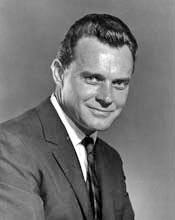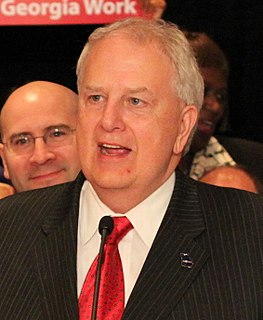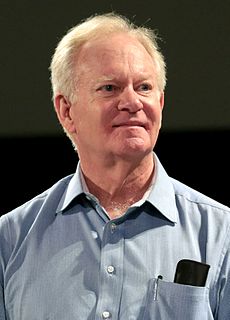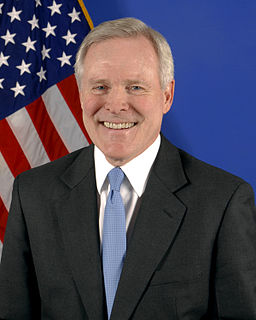
The 1910 South Carolina gubernatorial election was held on November 8, 1910 to select the governor of the state of South Carolina. Coleman Livingston Blease won the Democratic primary and ran unopposed in the general election to become the 90th governor of South Carolina.

The 2008 United States Senate election in Georgia took place on November 4, 2008. The run off election took place on December 2, 2008. Republican Senator Saxby Chambliss, first elected in 2002, sought re-election to his position as a United States Senator from Georgia. He was challenged by Democratic nominee Jim Martin and Libertarian nominee Allen Buckley. After a runoff election on December 2, Chambliss was elected.

Benjamin Bentley Blackburn is a former U.S. Representative from Georgia, who served from 1967 to 1975.

The 2010 Georgia gubernatorial election was held on November 2, 2010. Incumbent Republican Governor Sonny Perdue was term-limited and unable to seek re-election. Primary elections for the Republican and Democratic parties took place on July 20, with a Republican runoff on August 10. The Libertarian Party also had ballot access and nominated John Monds. On November 2, 2010, Barnes conceded to Nathan Deal. He took office on January 10, 2011.

The 1970 Georgia gubernatorial election was held on November 3, 1970. It was marked by the election as Governor of Georgia of the relatively little-known former state Senator Jimmy Carter after a hard battle in the Democratic primary. This election is notable because Carter, often regarded as one of the New South Governors, later ran for President in 1976 on his gubernatorial record and won.

The Arkansas gubernatorial election of November 8, 1966 was the first time since Reconstruction that a member of the Republican Party was elected governor.
Garland Turk Byrd was United States Democratic politician from Georgia, who served as the fourth Lieutenant Governor of Georgia from 1959 to 1963.

Electoral history of Jimmy Carter, 39th President of the United States (1977–1981) and 76th Governor of Georgia (1971–1975).

The 1986 Alabama gubernatorial election saw the election of Republican H. Guy Hunt over Democrat Bill Baxley. In state politics, this election is largely seen as a realigning election since Hunt was the first Republican to be elected Governor since Reconstruction. In March 1986, incumbent George Wallace announced that he would not seek a fifth term as governor, ending an era in Alabama politics.

The 1966 Georgia gubernatorial election was held on November 8, 1966. After an election that exposed divisions within the Georgia Democratic Party, segregationist Democrat Lester Maddox was elected Governor of Georgia by the Georgia General Assembly. The voting also brought future President Jimmy Carter to statewide prominence for the first time.
The 2010 Georgia statewide elections were held on November 2, 2010 in the U.S. state of Georgia. The primary elections were held on July 20. Primary contests in which no single candidate received a majority of the vote were decided in a runoff election on August 10.

The 1986 Georgia gubernatorial election was held on November 4, 1986. Governor Joe Frank Harris (D) was overwhelmingly re-elected over Guy Davis (R) to win re-election. As the state was beginning to trend more Republican, this is the last election in which the Democrat won the governorship by double digits.
The 1948 Georgia gubernatorial special election was held on November 2, 1948. The election was held as ordered by the Supreme Court of Georgia's decision in 1947 declaring Melvin E. Thompson governor in the wake of The Three Governors Controversy. Herman Talmadge, the son of the winner of the 1946 election, the late Eugene Talmadge, defeated Governor Thompson in the Democratic primary by a margin of 51.8% to 45.1% with three other candidates getting 3.1% of the vote and then proceeded to win the general election with 97.51% of the vote.

The 1982 Hawaii gubernatorial election was Hawaii's seventh gubernatorial election. The election was held on November 2, 1982, and resulted in a victory for the Democratic candidate, Governor George Ariyoshi over Frank Fasi, running as an Independent Democrat, and the Republican candidate, State Senator D. G. Anderson. Ariyoshi received more votes than any other candidate in every county in the state.

The 1990 Arizona gubernatorial election took place on November 6, 1990 for the post of Governor of Arizona. Republican Fife Symington defeated the Democratic nominee and Mayor of Phoenix Terry Goddard. Because no candidate received a majority of votes, a runoff election was held later on February 26, 1991, which Symington also won. This is the only election where Arizona used a runoff election.

The 2018 Georgia gubernatorial election took place on November 6, 2018, concurrently with other statewide and local elections to elect the next governor of the U.S. state of Georgia. Incumbent Republican Governor Nathan Deal was term-limited and thus could not seek re-election to a third consecutive term.

The 1987 Mississippi gubernatorial election took place on November 3, 1987, in order to elect the Governor of Mississippi. Incumbent Democrat William Allain was term-limited, and could not run for reelection to a second term.

The 1975 Mississippi gubernatorial election took place on November 4, 1975, in order to elect the Governor of Mississippi. Incumbent Democrat Bill Waller was term-limited, and could not run for reelection to a second term.

The 1923 Mississippi gubernatorial election took place on November 6, 1923, in order to elect the Governor of Mississippi. Incumbent Democrat Lee M. Russell was term-limited, and could not run for reelection to a second term. As was common at the time, the Democratic candidate ran unopposed in the general election so therefore the Democratic primary was the real contest, and winning the primary was considered tantamount to election.



















